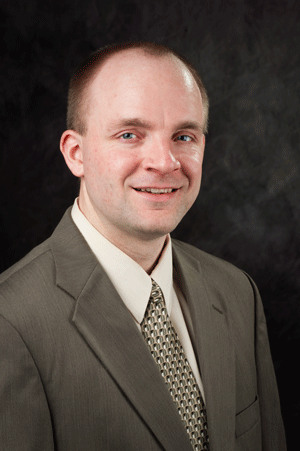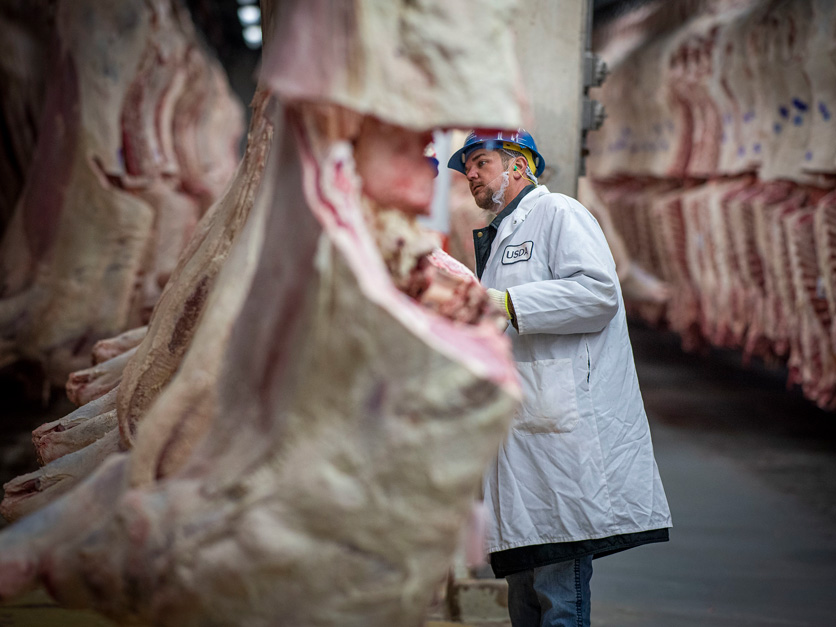A proposed 8,000-head-per-day beef processing facility in South Dakota is joining a packed roster of planned and existing plants that could be forced to compete for shrinking cattle inventories in the years ahead.
The $1.1 billion Rapid City plant, which will employ technology from high-tech packers in Europe and Asia, would be the nation's largest beef processing facility. The companies behind the project, Kingsbury & Associates and Sirius Realty, expect it to take three years to complete.
“This is a state-of-the-art, next generation facility that does not currently exist anywhere in the world,” said Megan Kingsbury, president and managing partner of Kingsbury & Associates.
A slate of six beef processing projects has been announced amid a push by lawmakers and the Agriculture Department to expand the nation’s beef processing capacity and redistribute marketplace power away from the four largest meatpackers: Cargill, Tyson Foods, JBS, and National Beef Packing.
Five new beef industry players, including Kingsbury & Associates, are constructing processing facilities with the hope that they can penetrate local markets throughout the Midwest and Idaho. National Beef, one of the nation’s largest existing packers, also plans to double the capacity of its current facility in Tama, Iowa, to 2,500 cattle per day.
All told, these six projects would allow the U.S. to process an additional 15,650 cattle per day. But the nation’s beef herd is shrinking due to drought, and economists warn the added capacity may outpace inventory levels, at least during this phase of the cattle cycle.
“It’s highly likely that if half or more of these announcements occur and if the existing older facilities that are running today continue to run, then we will have more physical capacity than we have cattle to fill,” said Glynn Tonsor, a Kansas State University economist who specializes in the beef industry.
 Glynn Tonsor, Kansas State University
Glynn Tonsor, Kansas State UniversityThe U.S. had a total of 30.1 million head of beef cattle in January of this year, a 2% drop from the same month last year, according to the National Agricultural Statistics Service.
Cattle are becoming increasingly more efficient through breeding, a trend that Tonsor believes will only continue to reduce the size of the nation's herd in years to come. USDA's Economic Research Service reports that there was a 25% increase in the volume of beef production and 6% decrease in the number of cattle destined for beef production between 1970 and 2020.
Rich Nelson, the chief strategist at Allendale, predicts there will be a “clear mismatch” in packing plant capacity and available cattle over at least the next three years. He said there could be an upswing in cattle numbers after that and, under the right conditions, enough beef production in eight to 10 years to meet the demand from all of the plants.
Looking for the best, most comprehensive and balanced news source in agriculture? Our Agri-Pulse editors don't miss a beat! Sign up for a free month-long subscription.
But in the near term, Nelson doesn't think some of the proposed projects will be completed, especially facing market competition from the massive 8,000-head-per-day Rapid City plant.
“One or two of these smaller plants that are being proposed, we’ll probably see them not built,” he said.
Kingsbury, who is spearheading planning for the Rapid City project, said the plant will likely end up looking outside of South Dakota for cattle to process. She noted that the plant may even source cattle from other parts of North America.
“We’ll fill our own space within the market,” she said.
The other projects include American Foods Group’s 2,400-head-per-day plant in Warren County, Missouri; Sustainable Beef’s 1,500-head-per-day plant in North Platte, Nebraska; Cattleman’s Heritage Beef Company’s 1,500-head-per-day plant in Mills County, Iowa; TruWest Beef’s 500-head-per-day plant in Jerome, Idaho; and InterMountain Packing’s 500-head-per-day plant in Idaho Falls, Idaho.
Cattlemen’s Heritage, lauded by Agriculture Secretary Tom Vilsack in a visit to the proposed build site last July, is currently under construction. The company is finishing up the blueprints and preparing the site of the $325-million facility, according to Chad Tentiger.
Tentiger, the president of TenCorp Inc. and the founder of Cattleman’s Heritage, put the project's estimated completion date at the end of 2023 or beginning of 2024. He said he believes the company will fill a vital space in the current cattle market, especially with so many existing plants that are outdated and aging.
“The old plants are going to get shut down sooner or later, no matter what we do,” Tentiger said. “I just want to make sure we have some new plants to take up the capacity issues before those old plants do shut down.”
Patrick Robinette, the chair of the processing committee for the U.S. Cattlemen's Association, said the introduction of all of these new facilities should improve prices for beef producers.
“It's going to create an interesting dynamic because you will have new buyers on the street,” Robinette said. “The buyers of these new plants are going to get more aggressive on pricing and JBS, Cargill, Tyson have got to have the animals flow through their facilities, so they're going to have to go up on their price.”
Cattleman’s Heritage has looked into the prospect of USDA funding, but has not secured any to date. Kingsbury said it was “premature” to make a judgment call on the possibility of USDA funding for the Kingsbury & Associates plant in Rapid City.
USDA is offering $650 million in funding and loan assistance for meat and poultry processing projects, plus additional assistance with working training.
For more news, go to www.agri-pulse.com.


